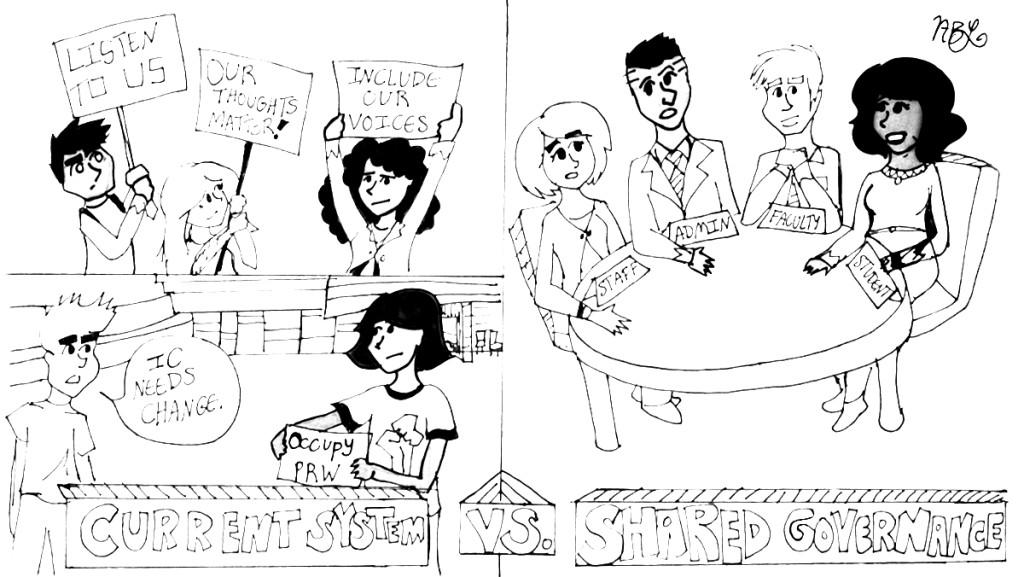The focus of the campuswide protest movement this semester has been on the removal of President Tom Rochon from his administrative position. However, there is something that needs to happen regardless of whether Rochon steps down. Campus community members have developed a laundry list of grievances against Rochon’s top-down administration, but this type of decision-making will not necessarily disappear with Rochon if he chooses to resign. In light of this, more efforts and attention should be directed at restructuring the way the Ithaca College community organizes itself and makes decisions in a model of Shared Governance.
The Student Government Association has passed a bill that proposed a structure for Shared Governance through the establishment of a College Advisory Council made up of students, faculty and staff at the vice presidential level. This comes after conversations with Benjamin Rifkin, provost and vice president for educational affairs, that have been taking place throughout the semester.
However, these conversations have been living under the shadow of all of the dissent against Rochon. But Shared Governance has the power to redistribute voices in the college decision-making process and make it equitable by giving students, faculty and staff alike a say in the way issues are handled. If instituted, this would create an open dialogue that could lead to action agreed upon by more than just the president.
The campus community should consider a traditional model of Shared Governance to be implemented as soon as possible. This would entail strategic faculty representation on committees; joint efforts among all stakeholders, while acknowledging primary responsibilities; increased representation of governing councils such as Faculty Council, Staff Council and the SGA; a faculty focus on academics and prioritization of accountability and communication, with use of electronic methods of communication to improve efficiency. It is important to start with this basic form of Shared Governance that can adapt as the campus climate evolves.
Of course, with all of these elements comes more responsibility on the part of students, faculty and staff that they must be prepared for. Shared Governance is something that has been visited in the past at the college, but it has never been solidified. The University of Wisconsin at Madison has one of the most developed Shared Governance structures, in which the “active participation of faculty, academic staff, university staff, and students is, and will continue to be, crucial to the decision-making process at the university,” according to an email sent from the administration to several leaders across their campus. Representatives from all of these constituencies serve on committees and sometimes chair them, and not necessarily for any additional pay. If a Shared Governance is to be instituted at the college, faculty, staff and students must be able to translate the dissent many have been voicing throughout the semester into concrete governance work and decision-making.
It may be a drastic change, but it is a necessary one. The current problem on campus is structural, and Shared Governance is how it can and should be addressed. Students claim their stake in this institution when they pay their tuition. Faculty and staff claim theirs when they provide students with what they paid their tuition for. It is time for these stakes in the college to mean something.















